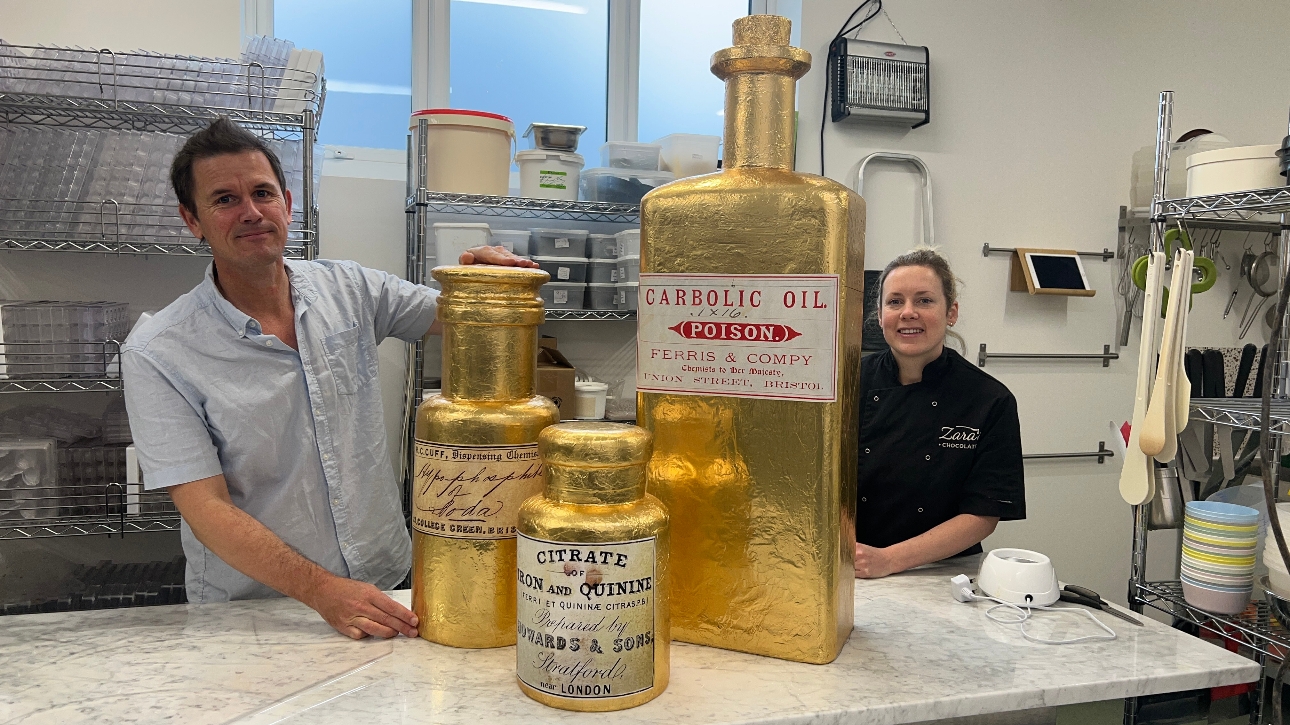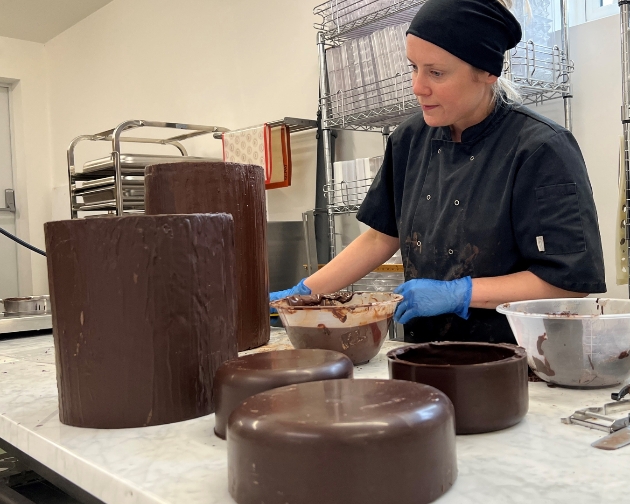Bristol-based VegfestUK celebrates 20 years of festivals with huge free party!
Celebrating a whopping 20 years of ground-breaking vegan festivals in...

Tyntesfield, located just outside of Bristol, will host an exciting exhibition from 11th September to 8th October, as part of Luke Jerram’s Edible Histories project.
Tyntesfield, cared for by the National Trust, is a Victorian Gothic Revival masterpiece, which was home to four generations of the Gibbs family for 150 years. Today, Tyntesfield is home to one of the largest collections of objects looked after by the Trust, many of which reflect Bristol’s rich history.
The project, which is funded by the West of England Mayoral Combined Authority, forms part of the Bristol 650 celebrations, which marks 650 years of Bristol being recognised as a county. Throughout the year, five objects that tell the story of Bristol have been selected from Aerospace Bristol, Bristol Zoo Project, Tyntesfield, Glenside Hospital Museum and M-shed. 1m-2m sized replicas of the objects have been created in Fairtrade chocolate by the award-winning Bristol chocolatier, Zara’s Chocolates, wrapped in gold foil and displayed with the original pieces within these much-loved attractions.
The team at Tyntesfield worked closely with Luke to choose the objects to be created from chocolate and agreed on a selection of bottles from the Victorian medicine cabinet in the Charlton Bathroom of Tyntesfield house. The exhibition can be found in the kitchen; a room that is not usually open to house visitors.
Artist Luke Jerram says, "Many of the medicines found in the cabinet were developed, made and sold in Bristol, whilst the bottle of Quinine would have presumably been used on the family’s international travels to help protect them from Malaria. So for me, these bottles help tell the story of the family who lived in Tyntesfield whilst also celebrating Bristol's history in the development of medicine and scientific research."
In addition to the citrate of iron and quinine bottle, two other bottles were chosen: carbolic oil, used as an antiseptic, and hypophosphate of soda, used to manage the symptoms of tuberculosis.
Dr Miranda Garrett, property curator for Tyntesfield, says, "Edible Histories is a wonderful opportunity for us to tell Tyntesfield's story in a new and unexpected way. The Victorian period was a time of extraordinary change, with key scientific discoveries and the reform of social care throughout the 19th century greatly improving life expectancy. But even wealthy families like the Gibbs remained profoundly affected by disease, and four of William and Blanche Gibbs's seven children died young."
On 21 October, the five chocolate objects will be brought together for the first time as part of a free public event at St. Georges, Bristol. Chosen through an online ballot, 10 members of the public will ceremoniously break the objects, using specially selected hammers and chisels. These special few will be the first to taste the chocolate and distribute some to the public who’ve come to witness the event. Luke and his team are also working with The Trussell Trust to distribute some of the chocolate to foodbanks across the city.
Details about how to attend and participate in the event will be announced soon.
In addition to the exhibition, Tyntesfield will host a talk with artist Luke Jerram on 19th September (booking required). To find out more about the Edible Histories Project at Tyntesfield visit www.nationaltrust.org.uk/tyntesfield
